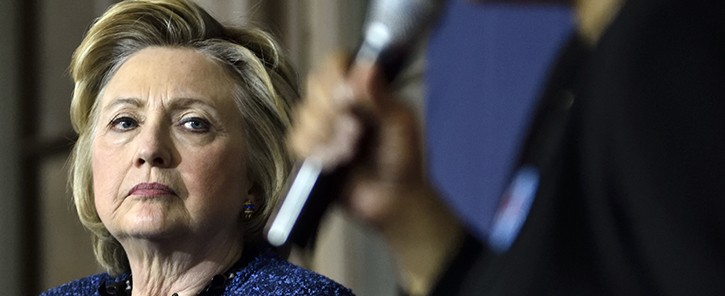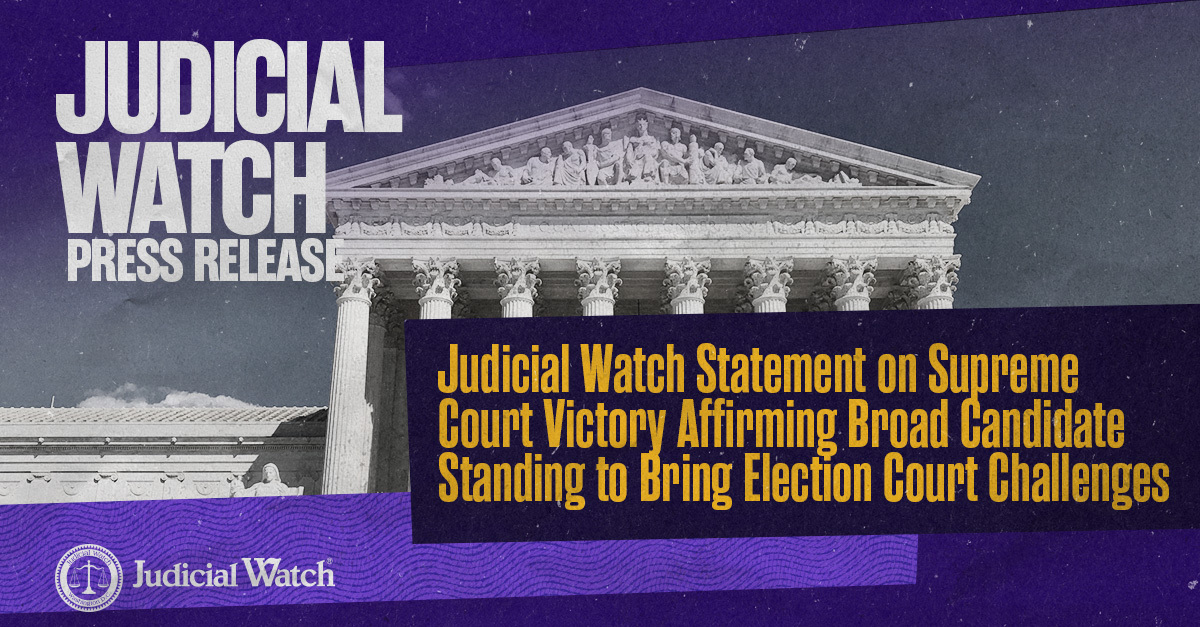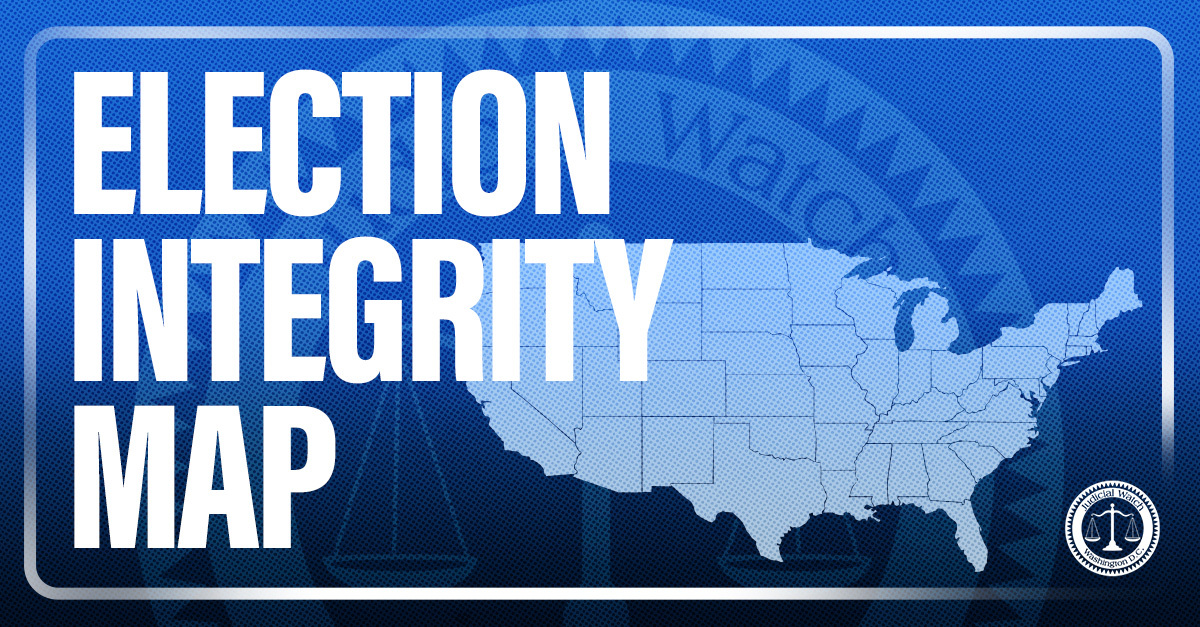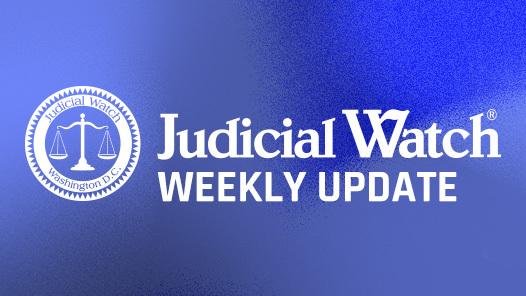
Judicial Watch Asks Court to Compel Hillary Clinton Email Answers

‘Secretary Clinton failed to provide sufficient reasons for refusing to answer … and the limited reasons she provides do not warrant sustaining her objections’
(Washington, DC) – Judicial Watch today announced it filed a motion to compel former Secretary of State Hillary Clinton to answer three interrogatory questions she refused to answer under oath submitted to her by Judicial Watch under a court order issued by U.S. District Court Judge Emmet G. Sullivan on August 19, 2016. In its brief, Judicial Watch argues that Clinton “failed to provide sufficient reasons for refusing to answer them, and the limited reasons she provides do not warrant sustaining her objections.” Hillary Clinton refused outright to answer questions about the creation of her email system; her decision to use the system despite warning from State Department officials; and the basis for her claim that the State Department had “90-95%” of her emails.
In her responses sent to Judicial Watch and the court on October 13, 2016, Clinton refused to answer three questions outright and responded that she “does not recall” 20 times concerning her non-government clintonemail.com email system. She preceded her responses by eight “general objections” and two “objections to definitions.” The words “object” or “objection” appear 84 times throughout the 23-page document submitted to the court and Judicial Watch.
In its motion to compel, Judicial Watch argues:
Pursuant to Rule 33 of the Federal Rules of Civil Procedure, “[t]he grounds for objecting to an interrogatory must be stated with specificity…. In addition, the party objecting to the interrogatory “bears the burden of ‘show[ing] why discovery should not be permitted….’” Although she objected to the three interrogatories, Secretary Clinton failed to provide sufficient reasons for refusing to answer them, and the limited reasons she provides do not warrant sustaining her objections.
Interrogatory 1 asks: “Describe the creation of the clintonemail.com system, including who decided to create the system, the date it was decided to create the system, why it was created, who set it up, and when it became operational.” In its motion to compel, Judicial Watch argues:
Secretary Clinton objects and asserts that the interrogatory is outside the scope of permitted discovery…. However, the creation of the clintonemail.com system is squarely within the scope of permitted discovery. Understanding the basic facts surrounding the creation of the system is an integral part of understanding how and why it came to be used for State Department business. To date, no witness has testified about these facts, and the Court specifically authorized interrogatories to enable Plaintiff to gather this information. Secretary Clinton’s refusal to answer the interrogatory is therefore misplaced.
Interrogatory 14 asks:
On March 6, 2009, Assistant Secretary of State for Diplomatic Security Eric J. Boswell wrote in an Information Memo to your Chief of Staff, Cheryl Mills, that he “cannot stress too strongly, however, that any unclassified BlackBerry is highly vulnerable in any setting to remotely and covertly monitoring conversations, retrieving email, and exploiting calendars.” A March 11, 2009 email states that, in a management meeting with the assistant secretaries, you approached Assistant Secretary Boswell and mentioned that you had read the “IM” and that you “get it.” Did you review the March 6, 2009 Information Memo, and, if so, why did you continue using an unclassified BlackBerry to access your clintonemail.com email account to conduct official State Department business?
Secretary Clinton objected to Interrogatory 14, asserting that it concerned “cybersecurity issues outside the scope of permitted discovery.” In its motion to compel, Judicial Watch argues:
Interrogatory 14 does not concern “cybersecurity issues.” It asks whether Secretary Clinton read a memorandum about the general use of unapproved or unclassified Blackberries, and, if she did read the memorandum, why did she continue using an unapproved or unclassified Blackberry – the device by which [she] accessed the clintonemail.com account she used to conduct official government business. A yes or no answer to whether she read the memorandum will not reveal any information the parties’ agreed-upon scope sought to avoid. Similarly, if the answer is yes, Secretary Clinton’s explanation as to why, after reading the memorandum, she continued to access her clintonemail.com account through her Blackberry also will not reveal any information the parties’ agreed-upon scope sought to avoid. The interrogatory clearly seeks information squarely within the scope of permitted discovery. Secretary Clinton should be compelled to answer Interrogatory 14.
Interrogatory 24 asks:
During your October 22, 2015 appearance before the U.S. House of Representatives Select Committee on Benghazi, you testified that 90 to 95 percent of your emails “were in the State’s system” and ‘if they wanted to see them, they would certainly have been able to do so.’ Identify the basis for this statement, including all facts on which you relied in support of the statement, how and when you became aware of these facts, and, if you were made aware of these facts by or through another person, identify the person who made you aware of these facts.
Secretary Clinton objected to Interrogatory 24 and asserted that the interrogatory asked for information protected by the attorney-client privilege. In its motion to compel, Judicial Watch argues:
Interrogatory 24 does not seek any factual information Secretary Clinton may have provided to her attorneys in confidence for purposes of obtaining legal advice. Nor does it seek any advice Secretary Clinton’s attorneys may have provided the secretary that would reveal facts she provided them in confidence. The interrogatory only seeks the factual basis for a specific representation Secretary Clinton made to Congress. It is irrelevant whether Secretary Clinton told her attorneys about the factual basis for this representation, either for purposes of obtaining legal advice or for some other purpose, because Plaintiff has not asked about any such communications. As a result, the attorney client privilege does not apply.
***
Because Secretary Clinton has failed to provide any such information to justify her assertion of the attorney client privilege, she should be compelled to answer Interrogatory 24.
“By refusing to answer our simple questions, Hillary Clinton is obstructing our efforts to get basic information about her email practices,” said Judicial Watch President Tom Fitton. “Because she has not – and cannot – demonstrate that her refusal to answer our questions is proper, Hillary Clinton should be required by the court to answer them promptly.”
The Clinton responses to interrogatives were received in the Judicial Watch Freedom of Information Act (FOIA) lawsuit before the U.S. District Court for the District of Columbia, which was first filed in September 2013 seeking records about the controversial employment status of Huma Abedin, former deputy chief of staff to Clinton (Judicial Watch v. U.S. Department of State (No. 1:13-cv-01363)). The lawsuit was reopened because of revelations about the clintonemail.com system.
For the full history of this case, click here.
###

















